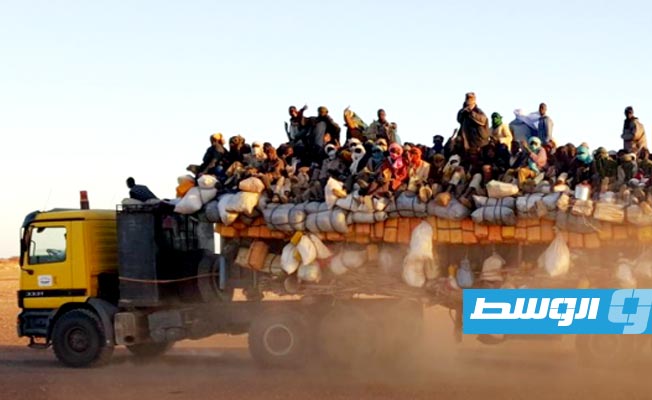- Wed May 1, 2024|
 Alwasat FM|
Alwasat FM|

The head of Niger's military council, General Abdourahamane Tiani, repealed a 2015 law criminalizing the smuggling of migrants seeking to reach Europe via Libya.
Under this law, Nigeriens who facilitated the transfer of foreign migrants to the north have been criminally prosecuted.
A source to France's Monde Afrique revealed the decision on Sunday.
Since the adoption of the EU-inspired law, drafted with the support of the United Nations, smuggler networks based in northern Niger have been dismantled and a large part of their equipment seized.
The law has turned Niger into a hub for containing northbound individuals, with the capital Niamey hosting a large reception center through which migrants are returned to their countries of origin. The European Union, the International Organization for Migration and the United States have also funded the strengthening of border control services in Niger.
Niger decided to repeal the law in response to the European Union's stances against the July 26 coup, its support for the extremely harsh sanctions announced by the Economic Community of West African States (ECOWAS), and its calls for the return of ousted President Mohamed Bazoum.
Last Friday, the European Parliament passed a resolution demanding the immediate and unconditional release of President Mohamed Bazoum, dropping all charges against him, and reinstating him to office. The European Parliament, after receiving a French proposal, also called on the European Council to impose sanctions on the leaders of the ruling military council in Niger.
An investigative report released in May 2023 revealed that migrants have almost no chance of survival during their journey across the Sahara from Niger to Libya.
The Geneva-based border forensic agency conducted the study, showing that since 2015, migrants crossing the desert to reach Libya face an increased risk of death.
That year, Niger made illegal the transfer and accommodation of migrants, forcing brokers and traffickers, to avoid the threat of severe penalties and imprisonment and find new routes away from main roads and to ones less overseen by the authorities.
New forms of border control had also been established with financial and technical support from European Union institutions and member states seeking to stop trans-Saharan migration.
Comments